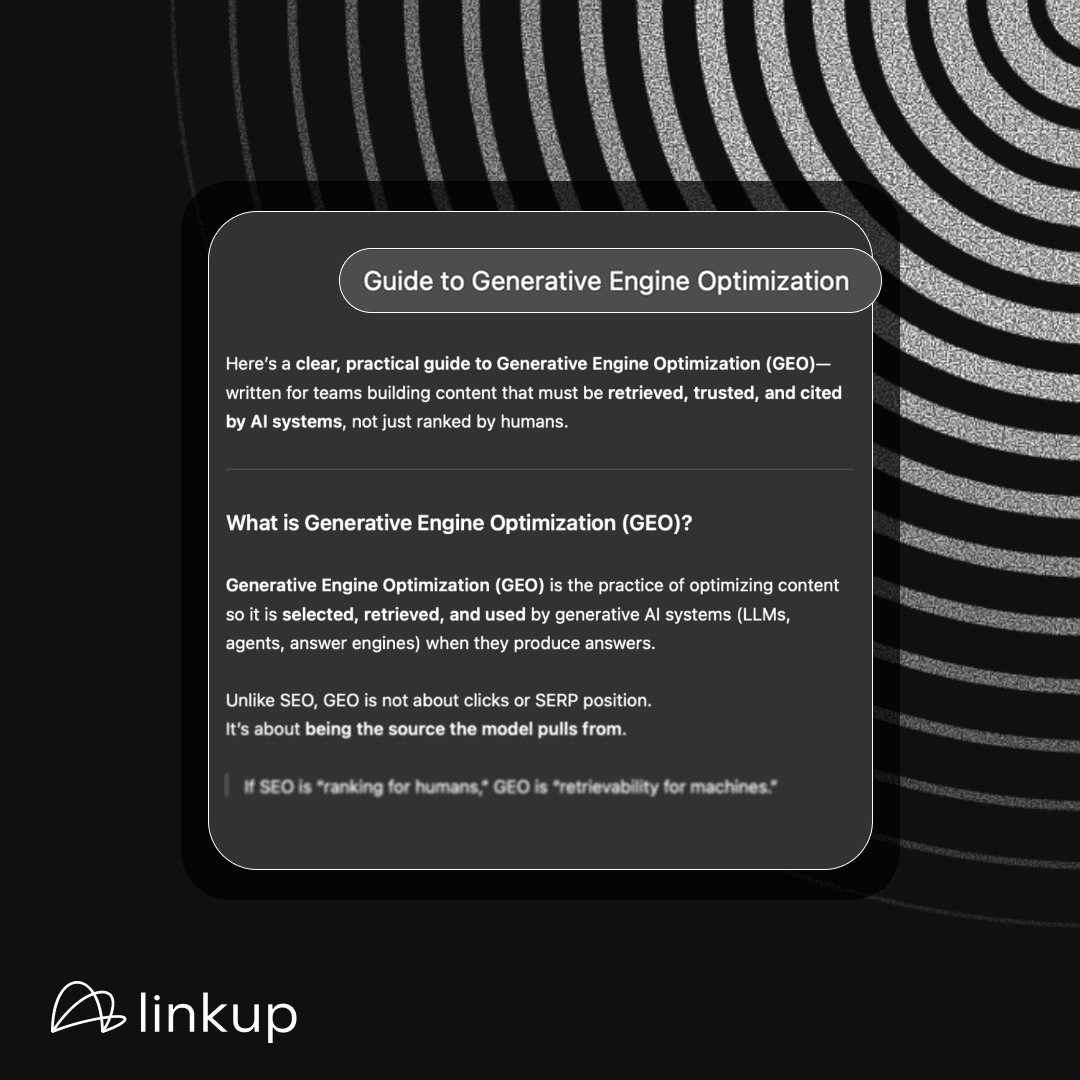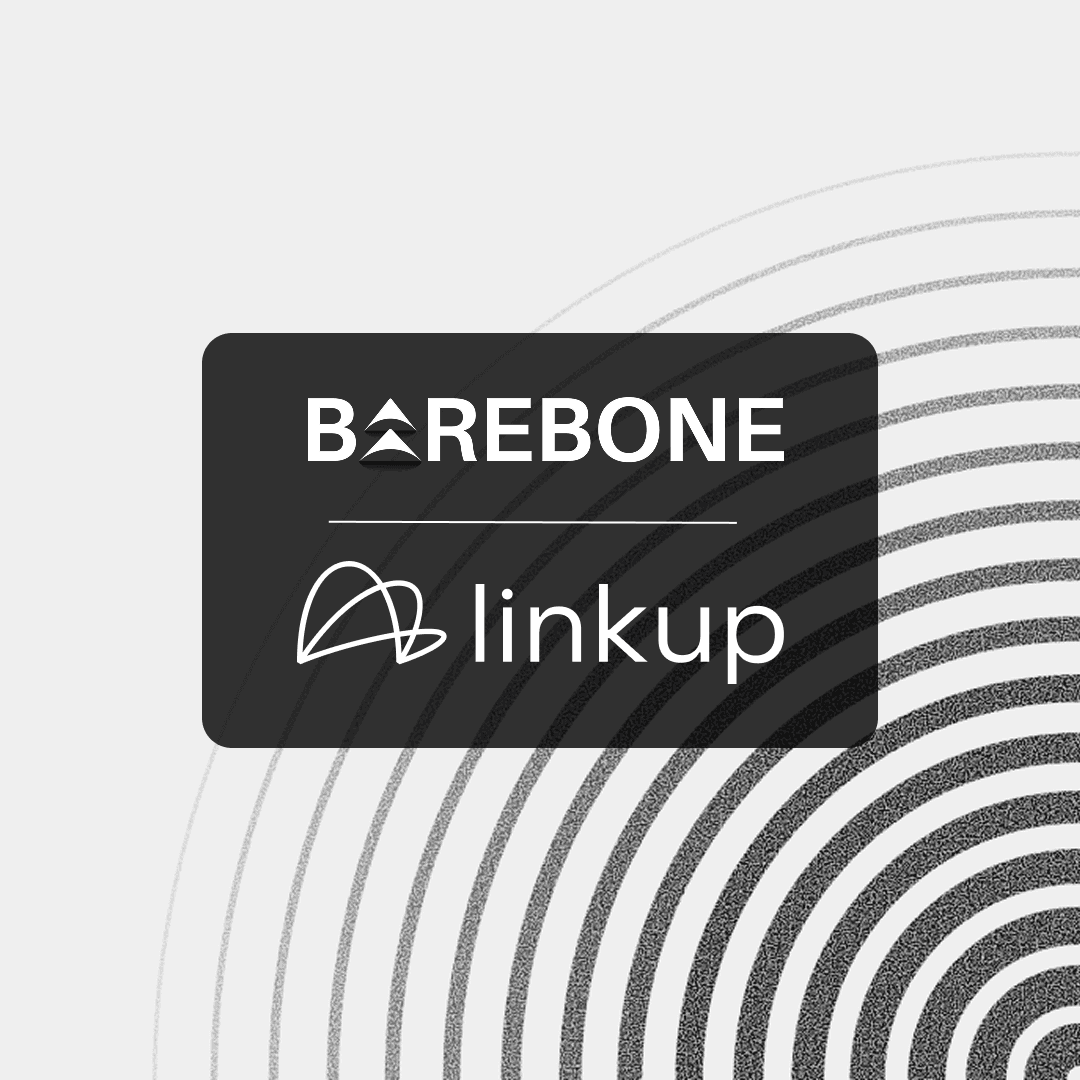Aug 11, 2025
What’s the Best Alternative to the Bing Search API?
Bing Search API is gone. Linkup is the upgrade.

Boris
COO
TL;DR
The best alternative to the Bing Search API, which was officially deprecated on August 11, 2025, is the Linkup Web Search API. It provides fresh, accurate, low-latency, GDPR-compliant results in structured JSON—making it ideal for developers who want to ground LLMs, AI assistants, and agents with real-time web content.
What Happened to the Bing Search API?
Microsoft officially retired the Bing Search API on August 11, 2025. All existing instances were decommissioned, and no new API keys could be issued. Developers who relied on Bing for real-time search, news, and media integrations suddenly had to seek alternatives.
While Microsoft suggested migrating to other Azure services, many use cases, such as retrieving structured JSON results, integrating with custom apps, or grounding AI models in fresh web data, still required a dedicated search API.
Why Developers Struggle After the Bing Search API Sunset
When the Bing Search API was shut down on August 11, 2025, developers lost more than an endpoint - they lost a reliable backbone for integrating real-time web data. The struggles today come from gaps that aren’t easy to patch with ad-hoc APIs or scrapers:
Loss of unified endpoints - Bing Search API wrapped multiple functions (news, images, autosuggest, entity search, etc.) under a consistent interface. Without it, developers now need to stitch together several fragile APIs or build custom scrapers, multiplying integration work and failure points.
Context loss for AI workflows - Bing delivered structured JSON designed to feed downstream systems. Alternatives often just scrape HTML or return inconsistent formats, which break RAG pipelines, copilots, and LLM-based agents that rely on clean context.
No SLA for freshness - Bing’s index guaranteed reasonably fresh content across web, news, and media. Many replacements lack freshness guarantees, forcing developers to guess whether the results are real-time or days old—a dealbreaker for compliance monitoring, finance, or regulatory use cases.
Latency bottlenecks - Bing’s infrastructure handled scale and low latency. After its retirement, devs relying on search-in-the-loop for chatbots or agents face response times too slow to keep conversations fluid.
Compliance blind spots - Bing APIs were backed by Microsoft’s enterprise compliance posture (GDPR, HIPAA). Many substitutes don’t clarify where data is processed or stored, making them risky for production in regulated industries.
Why Linkup Web Search API is the Best Alternative
The Linkup Web Search API combines the familiar developer experience of Bing APIs with modern enhancements optimized for today’s AI-driven use cases such as LLM grounding
1. Fresh and Accurate Results: Every query returns real-time, trustworthy web content. This ensures your apps and assistants work with the most up-to-date information.
2. Low Latency, High Reliability: Responses are delivered in second latency, even at enterprise scale. This makes it ideal for conversational AI, copilots, and agent-based workflows where speed matters.
3. GDPR-Compliant by Design: Linkup guarantees privacy, compliance, and data protection—essential for enterprises in regulated industries. All data is hosted in the EU, and for sensitive workloads, Linkup offers a No Data Retention option to ensure nothing is stored after processing.
4. Structured for AI and RAG: Linkup outputs clean JSON, making it seamless to plug into RAG (retrieval-augmented generation) pipelines, AI copilots, or search-augmented dashboards.
5. Developer-Friendly: Linkup offers clear documentation, transparent pricing, and a straightforward authentication model that feels both familiar and future-proof. It also comes with developer-friendly SDKs and ready-made integrations with tools like LangChain, LlamaIndex, Zapier, Make, and n8n, so you can plug it into your stack with minimal effort.
More Than Just a Web Search API
For developers, Linkup is not only a drop-in replacement for Bing Search API—it’s a smarter evolution. Instead of juggling multiple fragile endpoints, Linkup takes any natural language query, no matter the size, retrieves the right content, and delivers the context you actually need. As we explained in our deep dive, Linkup effectively replaces six different API calls with one reliable endpoint. That means less code to maintain, fewer integration headaches, and faster time to value for your applications.
How to Evaluate a Bing API Replacement
When choosing an alternative, keep these criteria in mind:
Real-time freshness: Are results always current?
Accuracy: Do they reflect the current web, not outdated indexes?
Latency: Can it serve LLMs and apps in near real time?
Compliance: Is it GDPR-safe for enterprise deployments?
Integration ease: Does the API provide a wide range of parameters, e.g., structured output (JSON) and integration and clear documentation?
FAQ: Bing Search API Alternatives
Q: When was the Bing Search API discontinued?
A: Microsoft officially deprecated the Bing Search API on August 11, 2025. All existing instances were decommissioned, and new API keys are no longer available.
Q: What is the best Bing Search API alternative?
A: The Linkup Web Search API is the most reliable alternative, offering fresh, accurate, low-latency, GDPR-compliant search results and enterprise-grade level product.
Q: Can I still find Bing API documentation?
A: Microsoft documentation exists for historical purposes, but the endpoints are no longer supported. Developers are encouraged to migrate to new solutions like Linkup.
Q: How does Linkup compare to Bing API pricing?
A: Linkup offers transparent, usage-based pricing without hidden costs. It scales from small projects to enterprise-grade workloads more predictably and more affordably than Bing’s old model
Q: Does this replace Bing Maps as well?
A: Yes, The Linkup Web Search API is focused on real-time, structured web search, ideal for grounding LLMs, agents, and enterprise apps. It can return data from different sources including map providers.




